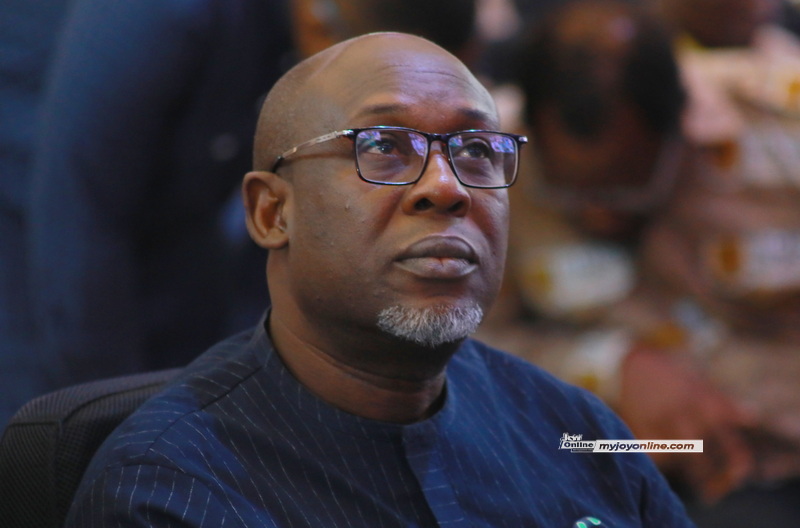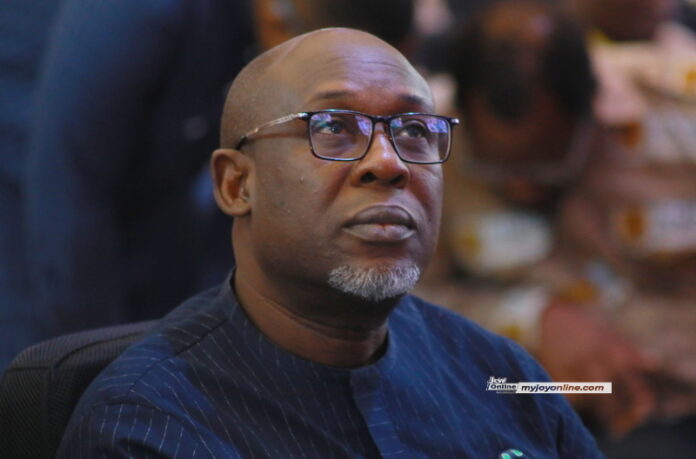
In a proposal addressed to H. Kwasi Prempeh, Chairman of the Constitution Review Committee, Vice President of IMANI Africa, Kofi Bentil, has advocated for sweeping constitutional reforms, including the outright abolition of regional ministers.
Mr Bentil’s unconventional ideas, shared in a public Facebook post on Friday, July 25, underscore his belief that Ghana’s “fundamental national systems” require a root-and-stem transformation.
Mr Bentil, admitting he hadn’t yet submitted a formal memo to the committee because “even my Imani brothers think I want too much”, laid out a compelling list of eleven radical changes he believes are necessary to “reset” Ghana.
His vision aims to dismantle what he perceives as a flawed governance structure and establish a more efficient, meritocratic, and less politically partisan system.
Key among his proposals is the abolition of regional ministers, alongside a cap on ministerial positions at 50.
This specific suggestion directly challenges the existing decentralized administrative structure where Regional Ministers represent the central government’s authority and coordinate activities at the regional level.
Mr Bentil’s proposed alternative envisions elected District Chief Executives (DCEs) forming a “Regional Assembly of DCEs,” which would then elect a portion of Parliamentarians from each region.
Bentil’s most audacious proposal centres on a complete overhaul of Ghana’s Parliament.
This radical restructuring implies a significant shift away from the current system of Universal Adult Suffrage (UAS) at all levels, which Bentil explicitly states he does not believe in beyond the local level.
He points to developed nations like the UK, most of Europe, and the USA, which he claims “don’t practice UAS at all levels” but use electoral colleges or proportional representation
Further proposals include the abolition of the Council of State (an advisory body to the President) and the repurposing of the National Development Planning Commission (NDPC) as a parliamentary think tank, akin to the Congressional Budget Office (CBO) in the USA.
Perhaps his most provocative fiscal suggestion is the deletion of Article 71, which currently outlines emoluments for certain officeholders and linking all public service pay, from the President downwards, to the national minimum wage.
“For eg. the President shall earn 8000 times the minimum wage and it cascades from there downwards. This way, we rise and fall together. No special class of people who pay themselves to rise above our common predicament, which they are to solve!!” he passionately argued.
Bentil also proposed creating a “National Defense Force” unifying all uniformed services (Police, Army, Fire Service, Customs) into one unit that could be deployed as a whole when needed, arguing against maintaining an army “which only trains and waits when we have never had a war and are not likely to have one!!”
Concluding his lengthy post, Mr Bentil acknowledged the ambitious nature of his suggestions: “Am I asking for too much? Of course, God and Beauty can be found in the details…. we can go there later.”
He remained steadfast in his conviction: “My point is, I don’t expect these to pass, but I am assured in my confidence that it is better than what we have today.”
His direct address to H. Kwasi Prempeh, a key figure in Ghana’s ongoing constitutional review efforts, ensures that these radical ideas, though likely to spark intense debate, will undoubtedly become part of the national conversation on governance reform.
DISCLAIMER: The Views, Comments, Opinions, Contributions and Statements made by Readers and Contributors on this platform do not necessarily represent the views or policy of Multimedia Group Limited.
DISCLAIMER: The Views, Comments, Opinions, Contributions and Statements made by Readers and Contributors on this platform do not necessarily represent the views or policy of Multimedia Group Limited.


